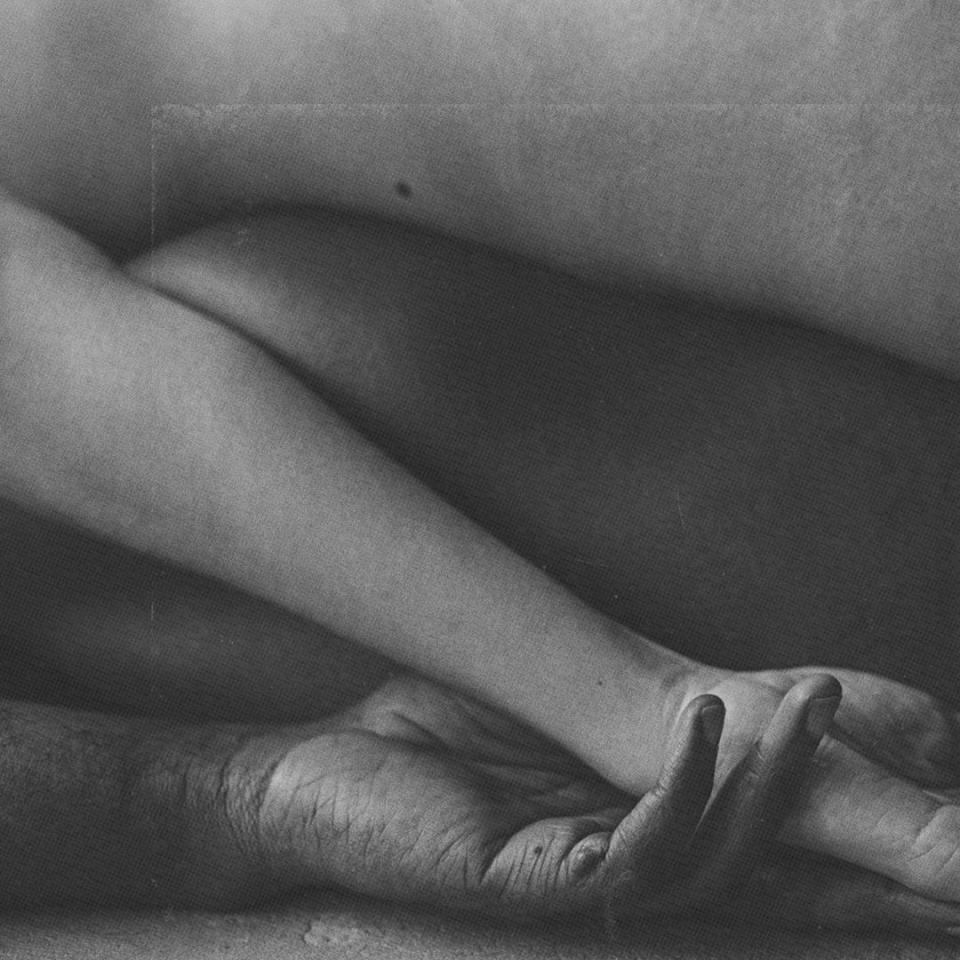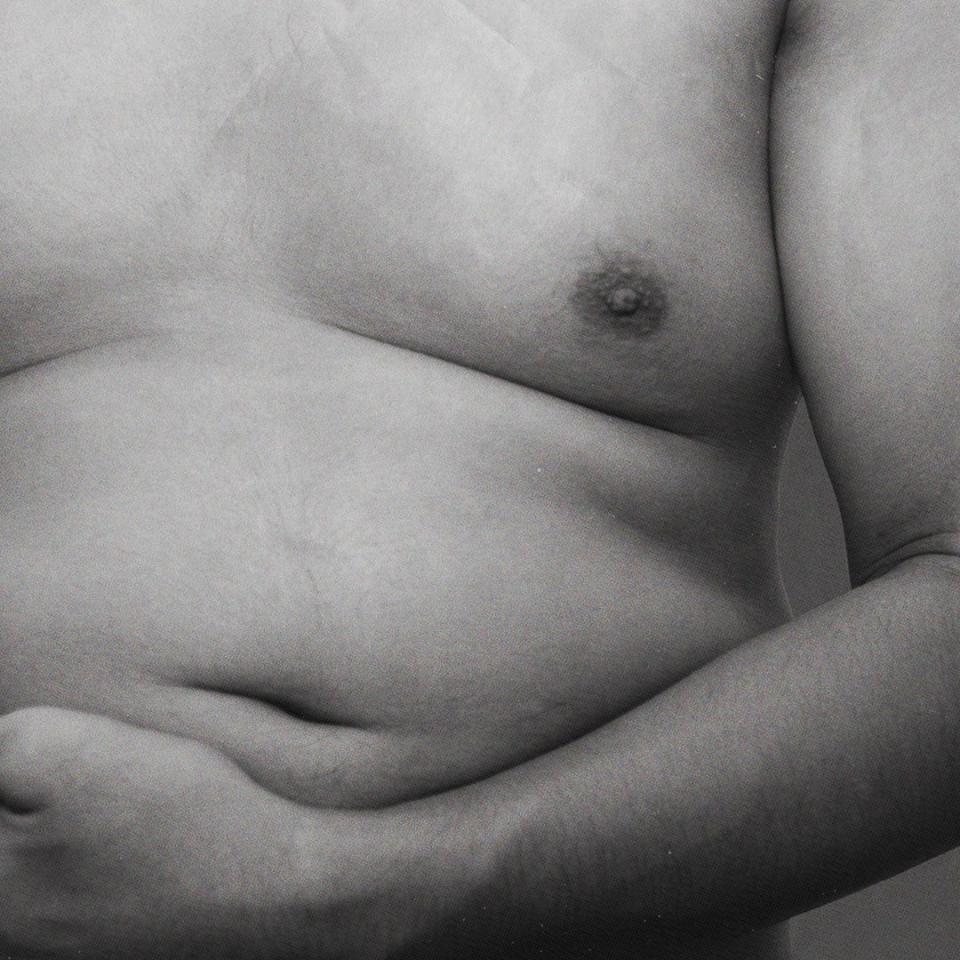We asked men what they really think about their sex lives

What’s that buzzing noise?
It builds to a crescendo, pulsing through the air. I look up; there’s a raspberry pink vibrator in the hands of a colleague on the opposite desk. It attracts some attention, and we all begin trading tips as to what toys are worth the money – and which ones really aren’t.
It’s 10am on a Tuesday, and while sex toy chat might not be commonplace in many offices (this is the Cosmopolitan HQ, after all), I know we’re not the only ones willing to talk about pleasure in public. We’ve seen, over the past 10 years, a sexual revolution hit the mainstream, one that puts women’s pleasure at the forefront. Wanks have become wellness, and great sex (solo or otherwise) has become self- care. This has benefited more than just our bedrooms; it’s said that the global market will reach £42.42bn by 2026.
Yet, when our talk turns to men, and the toys designed with them in mind, the atmosphere switches slightly. ‘I think it’s sexy,’ one of us offers. ‘My partner likes the Tenga egg,’ shrugs another. Others? They’re not so sure. ‘Just... creepy, sorry,’ is the consensus, along with, ‘They don’t need them, we do.’ It’s a valid point, or... is it?

Since the first UK issue hit the news stands in 1972, Cosmopolitan has been writing about sex. We pride ourselves on pushing for female pleasure, sexual liberation and honest, grown-up conversations about intimacy. Yet, even in this progressively minded office, there are sniggers over Fleshlights... I’ve also (confession time) smashed the like button on a meme implying that men are sex mad (and selfish in bed, to boot). I’ve listened as friends have gasped, ‘What’s wrong with me?’ when their male partners turned down sex, none of us even stopping to consider that he might be tired, or not feel that great about his body that day. We’ve come so far in our discussions surrounding the plethora of sexualities and identities, but there are still a lot of stereotypes and preconceptions out there. They’re heteronormative, damaging... and many are lumped on straight, cis men.
So I set out on a mission – one that would see me span the globe, from Tokyo to Scotland, and Amsterdam to... Croydon. I asked inappropriate questions at parties, sat in shops surrounded by walls of dildos and I pestered friends, friends of friends and friends’ exes to spill all about their erotic lives. All in a quest to figure out whether we’ve got something wrong about men and sex. And, if so, how does this impact those who date and sleep with them?
Boys' toys
‘I’m meant to wank with this? It looks like a coffee cup!’ We’re staring, brows furrowed, at what looks like a reusable thermos. But what I’ve just handed my friend is a Tenga Puffy, a mint green sex toy designed for penis-having people. It’s one of the gifts that I stuffed into my overpacked suitcase, after five days spent running around Tokyo on an eye-opening research trip.
The global male sex toy market is expected to double over the next decade – to around £30.96bn. In Japan alone, there’s a projected growth of £704.74m by 2027, with one in four men there using sex toys. In fact, Tenga products are so popular (the company is valued at over £2.36bn), they are stocked, alongside their stylish clothing range, in department stores where the shop assistants tell me that many of their customers will go out, brandishing their bag, as if it’s a status symbol. And recently, the brand launched here in Selfridges.
But while Tenga’s toys could be confused with coffee cups, or designer vases, I can’t say the same for others on the market. One (unusual) morning in Tokyo I found myself in a basement, standing beside an elderly gentleman with his finger inside a lone fake bum, testing it’s, erm, clenchability. Other items, lined up beside him, resemble the inside of mouths or vaginas, rubber replicas that are essentially body parts divided up into plastic packaging. It was clear why so many women object to the idea of male sex toys – these designs exacerbate the objectification of women’s bodies, misogyny that’s already so rife in our culture – and our bedrooms. Before Tenga, it was either use those or, as one sex toy shop manager told us, a (cooled down, overcooked) pot noodle. Grim. There were no design-led, accessible products that could be used either solo or as part of a couple, that made no assumptions on sexuality. But Tenga aims to change that, and believes that bringing the sexual wellness revolution to men will help us all and encourage the idea of sex as a journey, not an end destination to rush to. (My friend now adores his Puffy, by the way.)
‘We wanted to look at sexual pleasure as a whole,’ CEO Koichi Matsumoto says, through a translator. ‘Our vision was to make sexuality and sexual health something that is richer, fuller. We believe everyone has the right to find pleasure, have fun and enjoy their sexuality and wellness.’
But do men really need to discover pleasure? Many women would argue that they don’t (remember... ‘They don’t need them, we do.’) The Orgasm Gap could also back this up. It’s been widely cited for over 20 years, showing that in heterosexual relationships, women are having four times fewer orgasms than men. Multiple factors have been said to be at play, including the nonsensical claim that women’s bodies are ‘trickier’ than men’s (when masturbating 95% of women orgasm, and lesbians report a rate of orgasms similar to men, at 89%). The most common refrain? Men not trying, or putting their orgasm first. But the crux instead could be found in our collective obsession with climax. ‘I see, very commonly with men, that they don’t really know what pleasure is. All they know is ejaculation,’ says David Chambers, a dating, relationship and intimacy coach. ‘When it comes to enjoying the moment-by-moment in sex, they don’t have any real guidance on that.’ This could mean that many men subconsciously rush sex as a result, with the orgasm being the anxiety-reducing, rushing ‘reward’.

‘Regardless of gender, age or sexuality, everyone has some sexual shame,’ says Todd Baratz, a certified sex therapist and couples psychotherapist. ‘A lot of the men I see feel shame that they’re just simply not performing what they’ve internalised, by which I mean “see dick/pussy, get hard, have sex like an animal”. [They think] they should be a sexual machine and just want to fuck people... [Stereotypes] reduce sex down to a functionality.’ Similarly, Chambers lists off a whole host of fears men frequently cite, ranging from anxiety and body image to not pleasing their partners enough, not having as high a sex drive as they are expected to ‘or they’ve watched porn and compare their penises’. In a GQ survey, 54% of men said that watching porn made them feel self-conscious.
Fake (s)expectations
Sex on the kitchen floor, on the sofa, in the hallway.... When Beth Ashley moved in with her partner, aged 21, she assumed they’d have sex ‘everywhere, and all the time’. The reality? ‘It just didn’t happen,’ she says. ‘We spoke and I realised that I have a much stronger desire for sex than my partner does... but that was hard for me to accept.’ She questioned her looks, wondering if she needed to lose weight or change her appearance. This feeling remained that, in some way, it was ultimately her fault that her partner didn’t want sex. ‘My partner assured me he was attracted to me, he just didn’t have a huge desire for sex. But deep down, I struggled to believe him.’
This conflict, of what she was being told versus what she believed, was all down to the widely held stereotypes and clichés that we (still) see reflected everywhere we look. ‘I grew up [being told] that men are walking erections, that women are the ones who struggle to be in the mood or that women “put up” with men’s high sex drives,’ Beth reflects. No matter how reassuring her partner was, this image of men had been cemented inside of her. Beth isn’t alone in this; it’s so deeply entrenched in all of us that we may not even realise we are carrying it. That is, until it’s challenged. ‘We often don’t give men permission to talk about the things that lead to low sex drive, such as relationship dynamics, stress and the daily grind of life,’ says Sarah Hunter Murray, a marriage and family therapist and the author of Not Always In The Mood: The New Science Of Men, Sex, And Relationships. In the GQ survey, 47% of men said that they can be happy with little, or no, sex in a relationship, while 28% of young men under 30 haven’t had sex in the past year, a figure that’s tripled since 2018. And when I asked men to anonymously share some reasons why they’d turn down sex, the most common reasons cited were body image related, being tired or stressed with work. ‘Not only is the idea that men have higher sex drives an oversimplified notion, but it’s really just not true,’ adds Hunter Murray. ‘Multiple studies show that women’s and men’s sexual desire levels are more similar than different.’ While researching for her book, Hunter Murray, who has also been a therapist for over a decade, held 30 in-person interviews with heterosexual men before asking over 300 men to see if the findings held without her in the room. She found, largely, that they did. ‘I found that men want to feel desired and receive romantic gestures, rather than always being the one to initiate those things,’ she says. ‘[This] included wanting their partner to initiate sexual touch. Men regularly reiterated that they really loved (and were rarely receiving enough) compliments about how they look and romantic touches that didn’t have to be sexual in nature.’
It’s here that, despite my best intentions, I feel myself bristling. We live in a culture that prioritises male sexual pleasure, so do I really want to give them more airtime? Have they not had enough? Particularly, in my experience (granted, a biased one, having been working in women’s magazines for over a decade), it’s often women who do more of the emotional labour in relationships. Could I be sending a message of ‘oh, poor men, just cuddle them more and it will be okay’? It’s not our job to fix them. But, that’s not what I (or any of the experts I spoke to) mean. By highlighting the way that men are expected to behave sexually, we can also examine what false narratives have been fed to women, and how they, in turn, can be broken down. ‘Have [women] been socialised to be passive in sexual situations?’ Hunter Murray asks. ‘[Do they] want to challenge sexual norms by being more assertive and forward about their sexual needs?’ Baratz adds, ‘[I hear] that men can’t communicate, that men are horrendous. And while sometimes it’s true, it’s not just because “men are assholes” – it’s because of the way they were raised. They were punished if they cried or yelled at [for showing emotion], and most men don’t get the opportunity to work through that. It’s not to excuse behaviour, it’s just to deepen the story. Misogyny, sexism and the patriarchy impacts everyone.’
Baratz goes on to tell me about one of his clients, a woman currently going through a divorce and having a sexual awakening. ‘Each time she meets someone new, she punishes herself,’ he says. ‘I said to her, “If you were a man, you would feel empowered to be having sex with three people a week.” She wouldn’t have her friends saying to her, “You need to take it slow.”’ He explains how, in the straight couples he sees, it’s a similar pattern: one where a woman feels ashamed for wanting sex, and a man feels ashamed for not wanting it. And, by examining where this shame comes from, they manage to work through it. ‘[It’s asking], “Where did you learn this? Who taught it to you? What do you want? How do you want to be touched? What do you want the power dynamic to be?”’

It was recognising their experiences as individuals that helped Beth, now 26, and her partner move to a new place with their sex life. ‘We’ve worked out what we truly feel versus what we think we’re supposed to feel according to society,’ she says. This was, in part, helped by her own research for her upcoming book, Sluts: The Truth About Slutshaming And What We Can Do To Fight It, in which she examines societal ideas about libido. ‘I’ve learned that there are a few types of desire, namely spontaneous desire and responsive desire. The former is what a lot of people associate with men – just suddenly [wanting] sex and not always needing much affection. The latter is more associated with women. I have spontaneous desire and my partner has reactive desire, so we are now physically intimate in a non-sexual way before sex begins, by cuddling or going on dates or just touching in any way.’
The more I dig into the damage these stereotypes have, the more I recognise something – it’s the ‘feminine’ traits that men fear the most within themselves. They feel they’re not masculine enough, so can’t voice a need for affection, or when they don’t feel in the mood for sex. This, in turn, leads not just to a breakdown in communication in relationships, but also to a hidden group of men still deeply afraid to discover who they really are.
Behind the stereotypes
When author Vaneet Mehta was 11 years old, he began to realise that his feelings were outside ‘the norm’. But he was unable to find the words for exactly how he felt, and who he was, until he was 17. ‘When I learned about bisexuality [...] I just saw “that means you’re gay”,’ he tells me rom his plant-filled bedroom. ‘So, it took until I was 25 to come out, and people still find it hard to believe that [bi men] exist.’
In 2020, women (1.6%) were more likely than men (0.9%) to identify as bisexual. A new Pew Research Center analysis of survey data from Stanford University found that only 19% of those who identify as bisexual say all or most of the important people in their lives are aware of their sexual orientation. In contrast, 75% of gay and lesbian adults say the same. Breaking those statistics down further, a 2018 Stonewall report found that three in 10 bi men, in comparison with less than one in 10 bi women, say they can’t be open about their sexuality with their friends.
All of the therapists I spoke to said they frequently spoke to men who were straight-identifying and felt afraid to explore their sexual attraction to the same sex, so kept their feelings hidden. In my anonymous survey, when I asked men to tell me what misconceptions surrounded men and sex, some respondents were sleeping with other men and hadn’t told many people; others felt there wasn’t enough representation and that they couldn’t explore their attractions without being incorrectly labelled as ‘gay’; while others were into anal stimulation with their female partners, but didn’t like how that was perceived with their mates. It’s clear that entrenched homophobic views, and the stereotype of what ‘makes a man’, still holds a strong influence over how individuals feel they can express themselves.
‘Gay men are no more or less masculine than straight men or bi men,’ says Vaneet. ‘But the idea exists that by having sex with men, they’ll be seen as “less of a man” and that women won’t want to date them because they’re not masculine.’ Vaneet has seen this play out both in his own dating life and in the lives of the men he spoke to for his book, Bisexual Men Exist. ‘I’ve heard women saying, “I don’t want to have sex with a man who’s had sex with men. It’s disgusting.”’ Yet, according to research where Maria Pallotta-Chiarolli and Sara Lubowitz studied 79 women who had been with bisexual men, they found that – partly down to the fact that bisexual men have, as part of trying to understand their sexuality, questioned the negative aspects of masculine character traits – they were better lovers and fathers. ‘We had some women who said that after dating a bi man, they could never go back to dating a straight man,’ the researchers noted. However, when I ask Vaneet what he thinks, I’m surprised by his answer. ‘I feel like when we can go too far the other side, being all, “Bi men are better in every single way,” all that’s doing is painting people with a broad brush again. Bi people are just people, and there are so many different things that are also a part of their identity. Positive stereotypes are still stereotypes,’ he says.
We’re all dealing with a lot of baggage when it comes to our ideas of gender, sex and sexuality, but what I’ve realised is that the best solution is, to quote Vaneet, to treat people as people. Yes, there will be men who are selfish, or who abuse the power dynamic at their disposal; some stereotypes exist for a reason. But so often we’re told lies about what ‘good’ sex should look like, when the reality is that will change with each sexual encounter we have, throughout our lifetimes. Sex shouldn’t be dictated by dated, gendered definitions and the more we examine these, the more freedom we can find to explore pleasure and sexuality and what works for us individually. A good place to start? By simply asking, ‘How are you feeling today?’ or ‘What are you into?’, and creating a space where our partners feel comfortable enough to tell us the truth.
Catriona Innes is commissioning director at Cosmopolitan, you can follow her on Instagram
You Might Also Like


